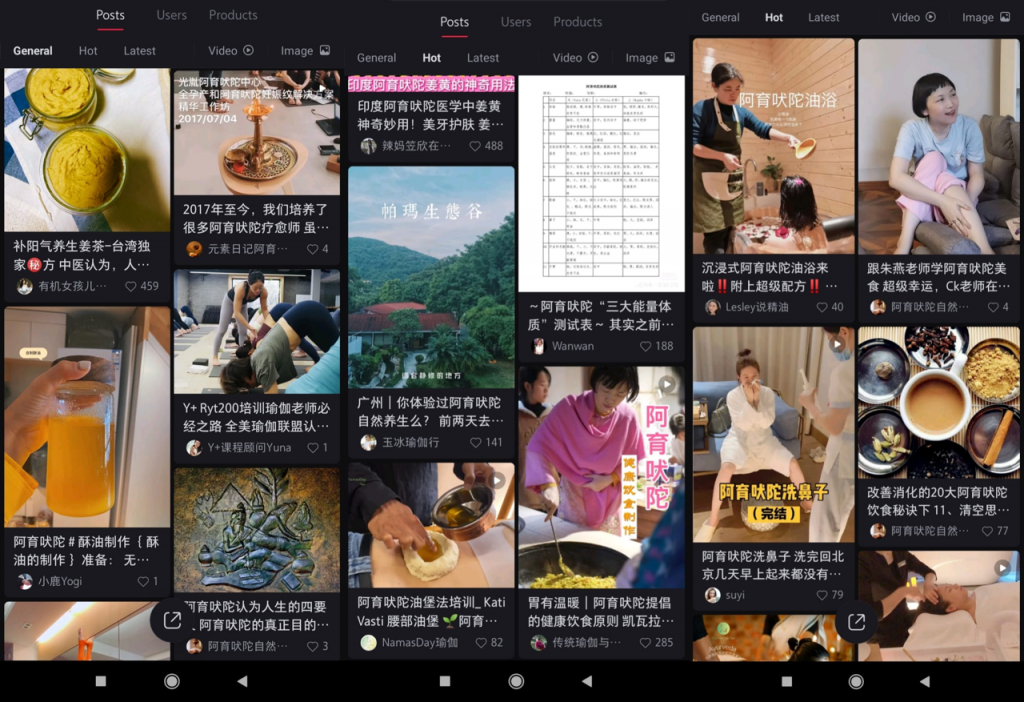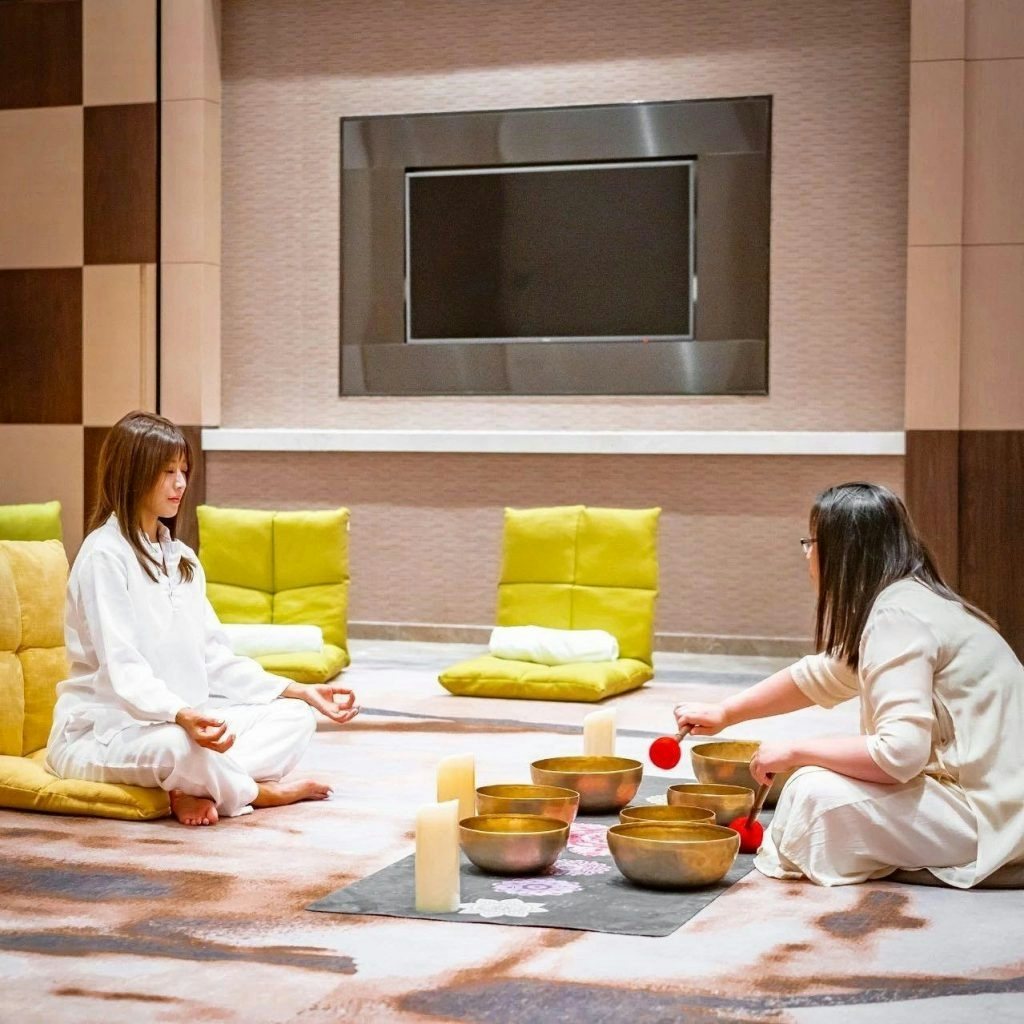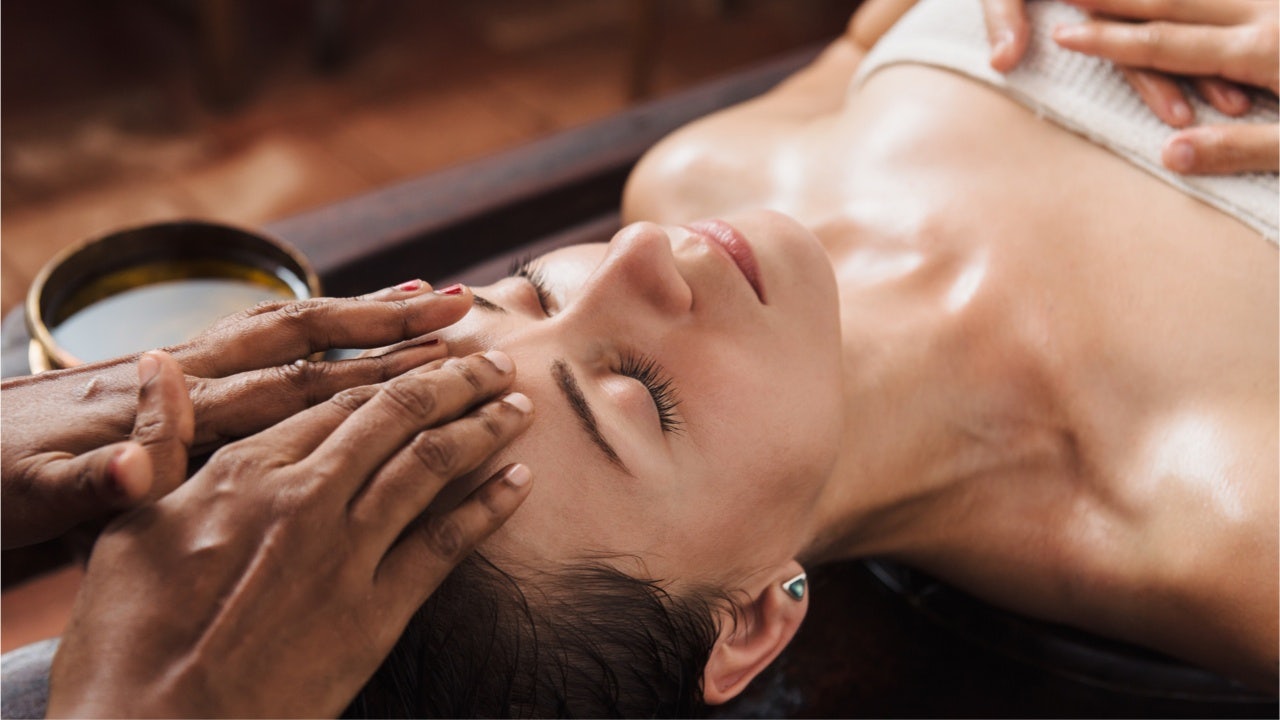“Namaste” is a new mantra for many of China’s beauty consumers. After K-beauty and C-beauty, Indian Ayurveda-inspired beauty has become the latest emerging trend to expand its presence from the country’s cosmetic aisles to premium spa retreats. As a part of a broader consumer shift toward holistic skincare, Ayurveda’s rising popularity is proof that the new generations of Chinese consumers are seeking wellness beyond a skin-deep level.
On Xiaohongshu, the hashtags #Ayurveda, #HimalayanBowls, #AyurvedicHealing have quadrupled their number of views over the past year. Meanwhile, Ayurvedic beauty brands like KAMA, Forest Essential, and Rituals have become the new darlings of China’s trend-savvy beauty influencer set.

Ayurveda-themed hotels and retreat club numbers are also gaining traction. From Shanghai to inland cities like Kunming, Ayurveda wellness hotels have mushroomed and offer consumers ad hoc beauty and diet treatments according to their ayurvedic body types. For gym-goers, Ayurveda yoga and meditation practices have become staples at urban gyms like Lululemon's workout clubs.
Ayurveda’s meditative approach to beauty has a cultural advantage in China. As a discipline rooted in nature-based healing methods, Ayurveda shares many fundamental beliefs with traditional Chinese medicine (TCM), advocating for holistic knowledge of beauty and health.
“I find Ayurveda’s beauty principles very similar to the TCM theories I have grown up with,” said Na Xu (@IamXuu on Xiaohongshu), a Shanghai-based lifestyle blogger. “The idea of seeing beauty as an inside and out process really resonates with me. Just like TCM, Ayurveda also believes that beauty comes from a harmonious state of mind, heart, and body. It made me immensely calmed.” Like hundreds of beauty enthusiasts, Na Xu vlogged her experience staying in the Anandi Hotel — the most-hyped Ayurveda healing destination in Shanghai.

China’s millennials and Gen Zers are, unsurprisingly, perfectly aligned with Ayurveda’s therapeutic call. According to a 2021 report by CBNData, over 60 percent of the 1000 surveyed young consumers say they experienced a significant level of work-related stress, anxiety, and sleep problems over the past year. Sandwiched between a demanding 996 working schedule and a competitive social environment with unrealistically high beauty standards, younger Chinese are increasingly seeking beauty rituals that help them reach a deeper relaxation beyond physical touchups.
Ayurveda beauty practices offer a sense of spiritual awakening and conscious being, drawing overworked and burnt-out young Chinese. Whatever the status of China's “Lying flat” movement — a millennial Chinese lifestyle trend to opt-out of stressful jobs — a fast-paced and highly competitive working culture is likely here to stay for most citizens.
“Many of our members signed up for Ayurveda therapy sessions because they have serious sleep problems and anxiety issues,” said Tasha Liu, a singing bowl therapist in Ayuryoga, a yoga therapy chain in the southern Guangdong province. “From physical activities like yoga and oil massages to more spiritual practices like singing bowl sound therapies, Ayurveda gives people the chance to connect with themselves.”
As trend-savvy Chinese beauty consumers explore the link between spirituality and beauty afresh, so are brands and tech startups. A 2021 study showed that China’s aromatherapy e-commerce sales had grown by 140 percent annually between 2019 and 2021. Meanwhile, its market size is expected to surpass 11 billion (70 billion RMB) by 2022.
In China's tech sector, meditation apps like Tide (潮汐) and Now Meditation received over 10 million dollars each during seed funding. According to Now Meditation’s app data, the platform’s users have exceeded 7 million since its launch in 2016. Additionally, Heart Island Diary, a mood-tracking app that targets China’s GenZ users, recently completed an angel funding round of nearly two million dollars.
China’s mindfulness economy is aglow with the consumer's growing need for nature-based, therapeutic beauty regimes. In the country’s ultra-competitive beauty market, K-beauty, J-beauty, and C-beauty have already provided consumers with endless choices for reaching physical perfection. Yet, there is still a gap to be filled for those who want to expand their wellness practice to more spiritual spaces. And Ayurveda’s emerging relevance is a sign that the country’s spiritual beauty market is closer to taking off.

